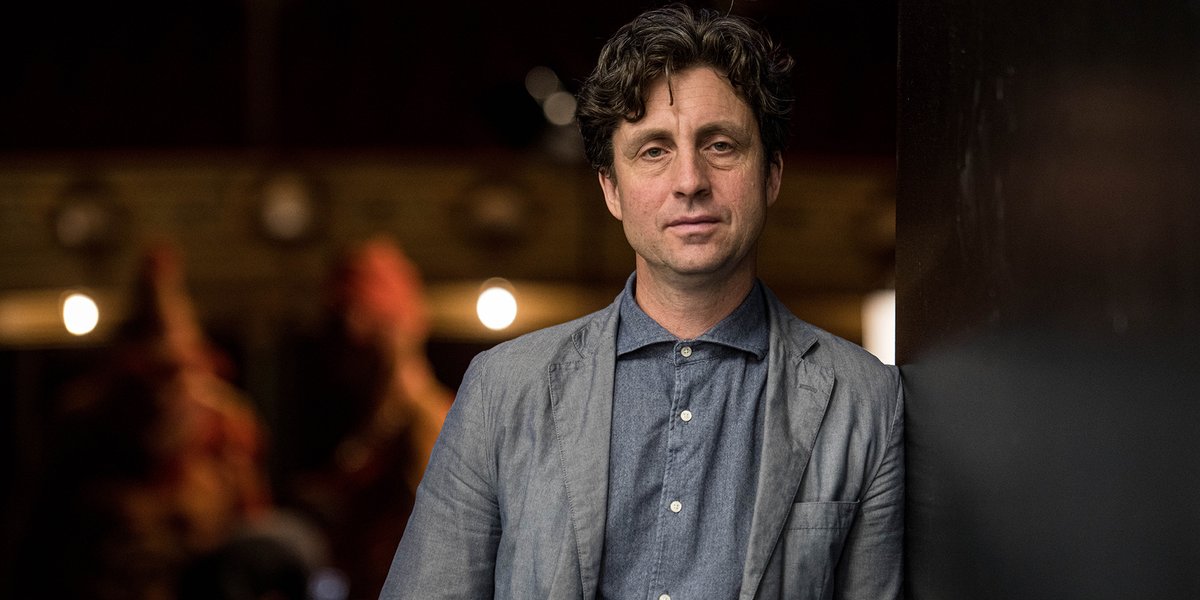Cros & Liana Youl
“In Tasmania, we are very lucky with what we have. That’s what made me want to come home. Even with the hard bits — it’s worth it.”
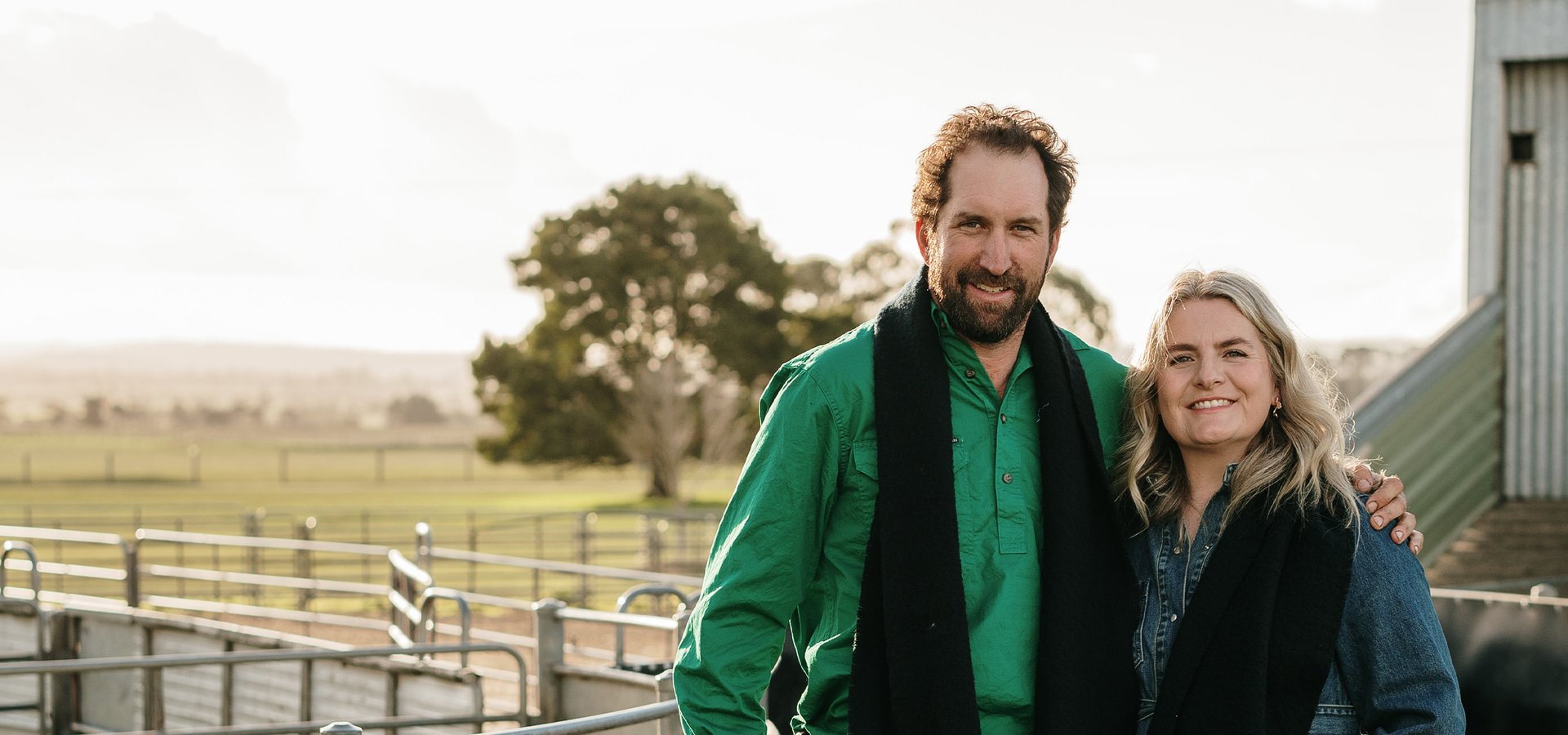
“You’ve just got to try and do it better every year. Learn something from your mistakes, and do it better the following season.”
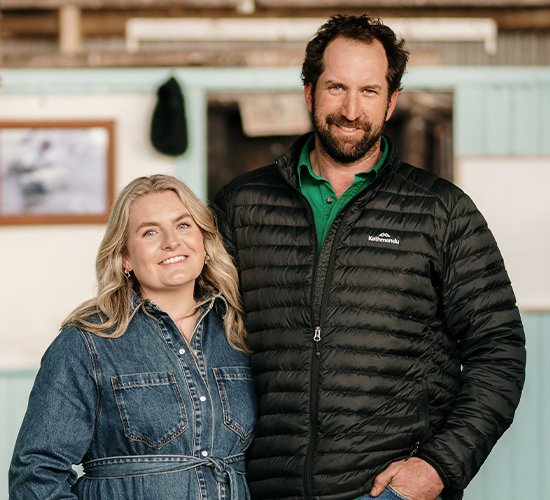
“A friend came into my office and said, ‘Do you need any sheep poo for your garden?’”
A cheeky glint flashes across Liana Youl’s eyes as she recalls the set-up that led her to meet her future husband. “I was like, ‘Maybe, why?’ She’d told me months before that there was a guy she wanted to set me up with. She said, ‘We’re going out to Cros’s house on Sunday to get sheep poo for the garden. He’s going to do a barbecue for us,’ and the rest is history.”
Six generations’ worth of history, it turns out.
Fast forward over a decade and Alex Youl — also known as Cros — and Liana have established the seventh. Their three children, Sebastian, Louis, and Camilla, have joined them as the newest generation to care for Elsdon, near Perth in Tasmania’s Northern Midlands.
“The original land grant was to a reverend called John Youl in 1807, who came out from England,” Cros explains. “He had the churches from Georgetown to Campbell Town, and part of his reward for service to the church was Symmons Plains.”
Elsdon was once a part of Symmons Plains, but was later separated from the main property. As a child, Cros — alongside his siblings — moved between the various farm dwellings on the farm: the main homestead, a brick house, and a cottage.
Since completing school in 1998, Cros has had 21 years working at Elsdon. He graduated from Marcus Oldham College in 2004, with an Advanced Diploma in Rural Business Management.
Cros was also very fortunate to travel overseas during this time, with 3 years away exploring over 70 countries. But he couldn't ignore the pull of his island home. Cros returned to Tasmania and in 2012, after meeting Liana, they dove headfirst into family life and running the farm.
Liana wasn’t all green to farming when she met Cros. “My mum grew up on a dairy farm under the Western Tiers — but cows are very different to sheep! So, I knew a little bit about farming. Cros sold it well when we were dating. He’d come home on time, and we went to the beach on the weekends. We don’t do any of that now,” she laughs.
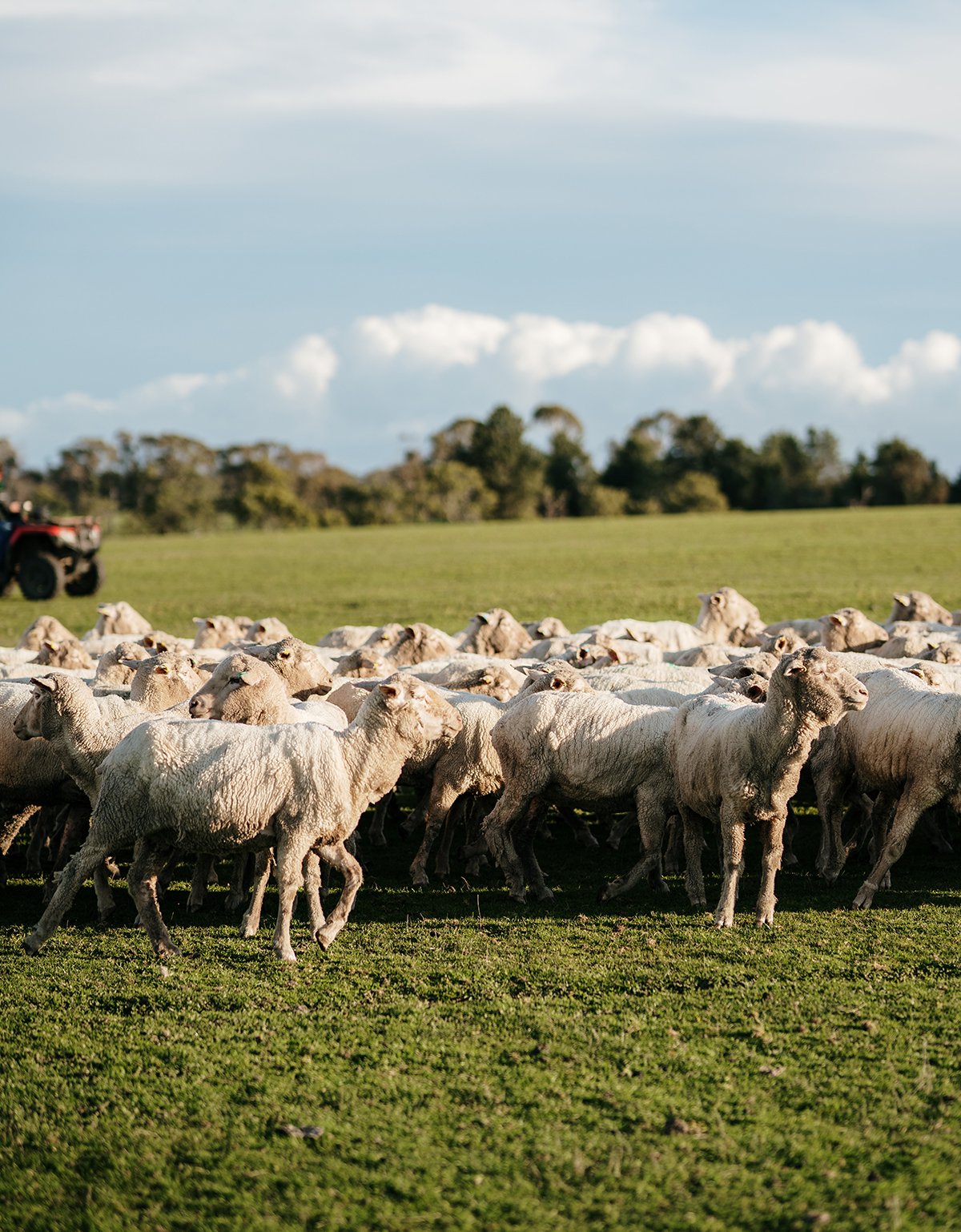
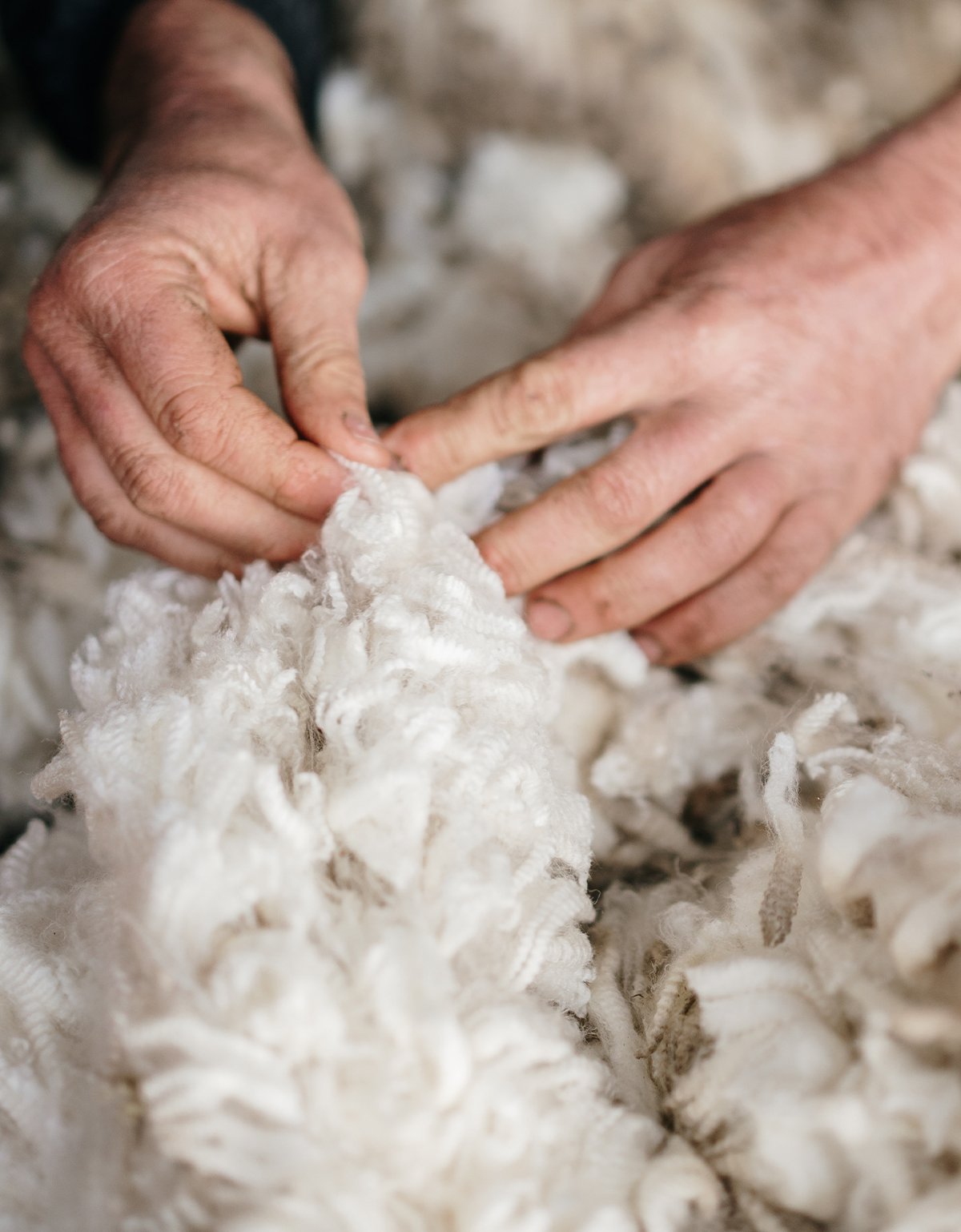
“When we first got together, I was helping quite a bit on the farm — on the four-wheeler, helping to round up sheep, in the shearing shed. Having kids slowed that down. But now our youngest is in kindergarten, I’ve been helping in the sheep yards. I do the accounts and look after HR.”
Elsdon specialises in Merino wool, but it didn’t always. Over generations of responding to shifting market needs and the unique environment of the property, Merinos came to be Elsdon’s specialty.
In Cros’s grandfather’s time, Elsdon was a Polwarth Stud — a different sheep with stronger wool. “In the 80s there was more pressure on the wool to be finer,” says Cros. “Polwarth wool was worth less, so there’s been money spent on genetics to make the sheep what it is today, and produce wool that suits our environment.”
While the fineness and quality of Merinos take great care to produce, compared to other hardier cross-breds, Cros says the result is worth it.
“You go to the auction room to see all the wool, and our wool just glows — because of where it comes from. The Tasmanian environment means it looks totally different. On the mainland they have burr and dust, so the quality is different.”
This result has taken generations of hard work and a deep understanding of Merino wool.
“You’ve got to be careful with Merinos. If we were to take our sheep to an area where it rains a lot, the quality would diminish because of the extra rain. The colour of the wool would be impacted as well.
“You’ve got to have an animal that can handle the rainfall, the frosts, the extremes—the everything.”
Some 8,800 sheep provide Elsdon’s wool, which is now used by fashion designers like Hugo Boss, R.M. Williams, Country Road, and M.J. Bale.
Elsdon's Responsible Wool Standard certification ensures they have a firm standing in the global market. This accreditation involves third party audits to verify compliance with strict requirements for animal welfare, land management and social welfare.
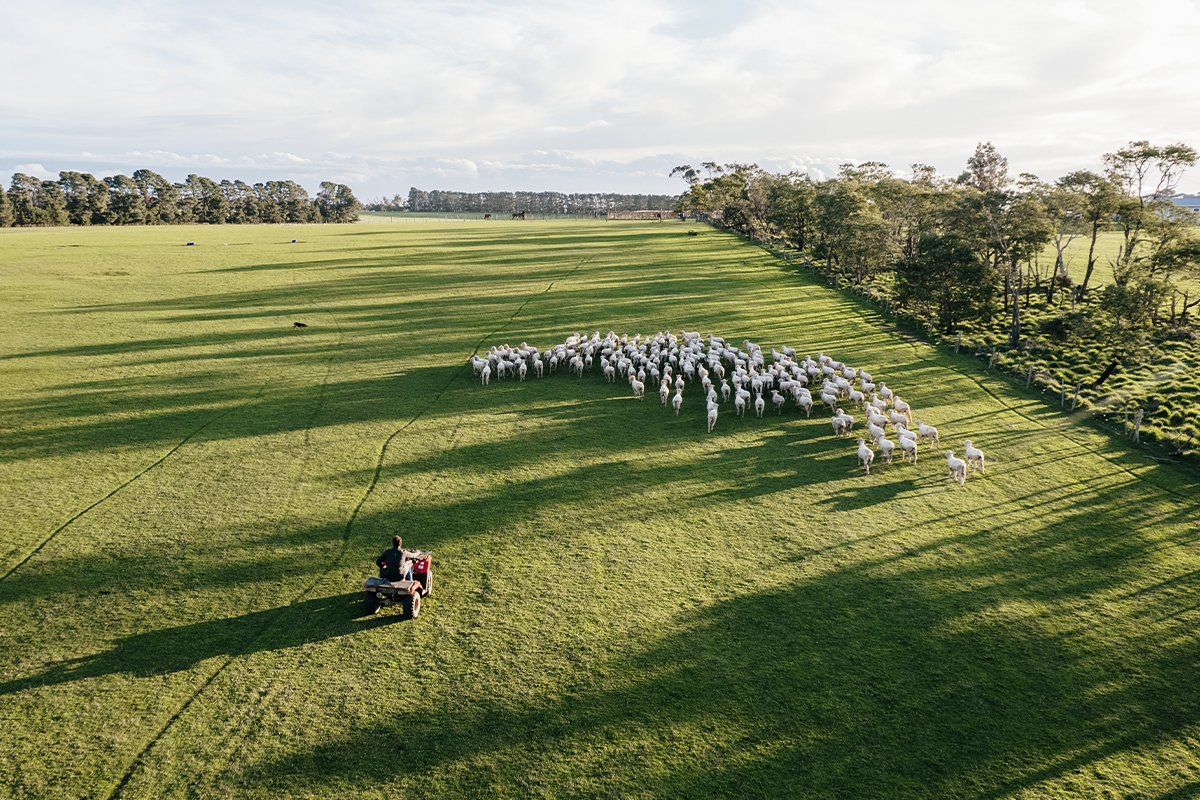
In the lambing season, up to 6,000 extra mouths are born in Elsdon’s paddocks. Every ewe is scanned to check how many lambs she’s carrying.
“They get allocated the paddock for best shelter, best grass, and get divided up depending on whether they are singles, twins or triplets. We try to keep the stocking rate as low as possible so there’s no miss-mothering,” says Cros.
“If for some reason a lamb or a mum has died through natural causes, we’ll try and mother them up with a different mum by making them smell the same,” says Liana.
It’s clear that each stage of wool production is managed carefully and sustainably at Elsdon, built around an intricate understanding of the environment and generations of farming knowledge.
“You’ve just got to try and do it better every year,” says Cros. “Learn something from your mistakes, and do it better the following season.”
Technology changes assist each new generation of farmers at Elsdon, a privilege Cros is highly aware of. “Back in my grandfather’s and great-grandfather’s time, one of their roles was to take the sheep to water, to the river, twice a day. They didn’t have dams or simple things like water troughs.
“Tasmania’s very lucky, we have beautiful water to irrigate and technology to make it work. That’s certainly transformed the farm.”
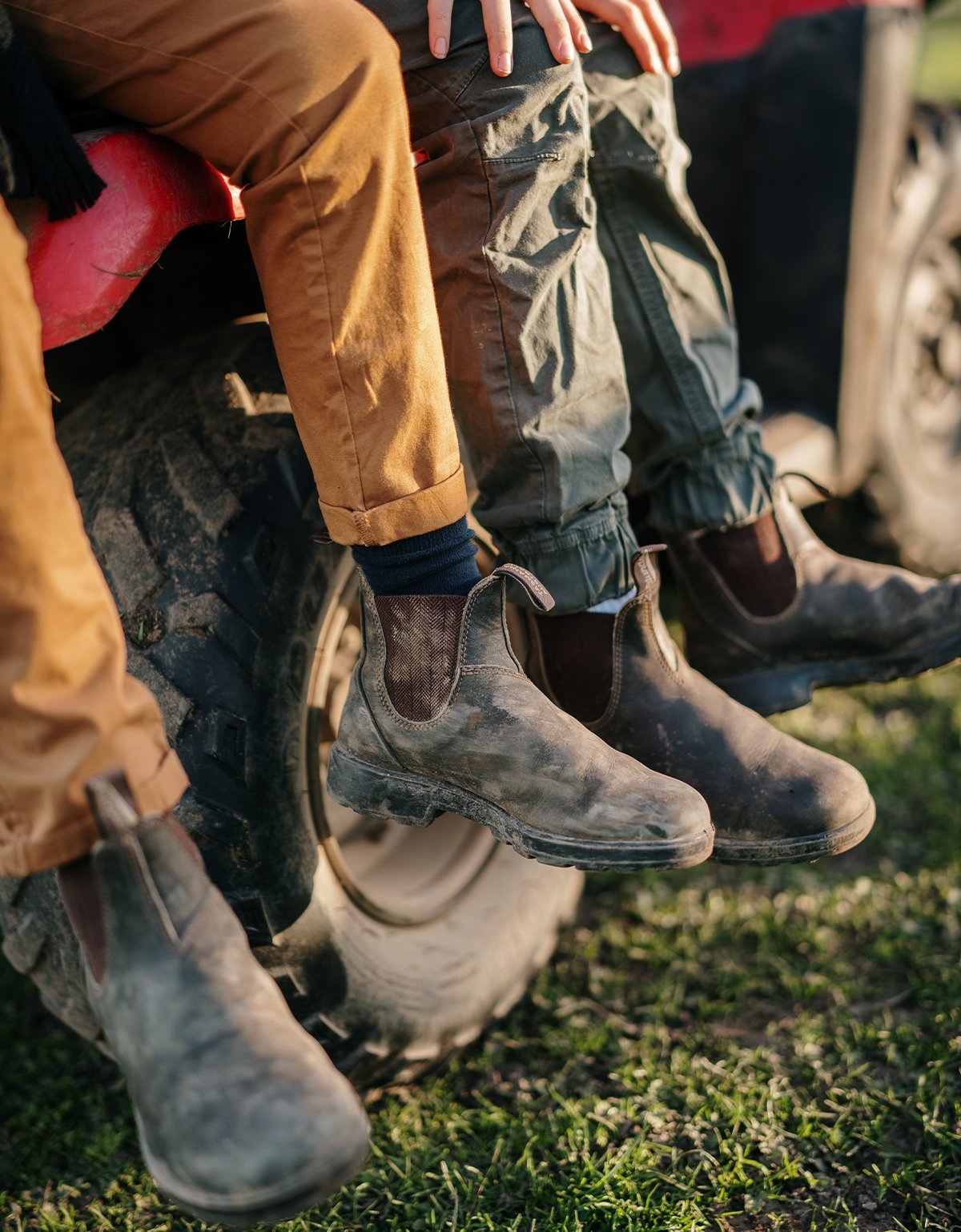
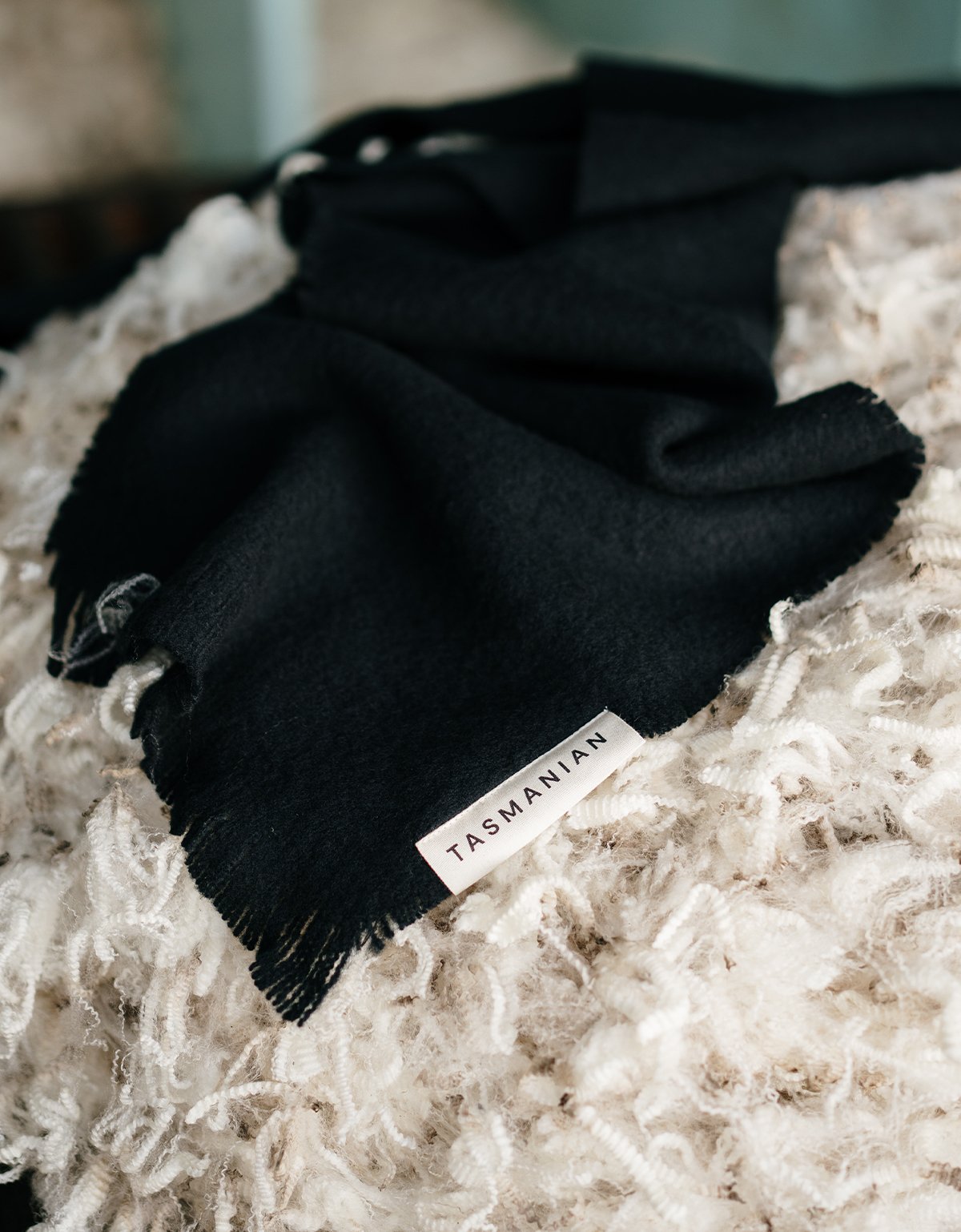
Rain, hail or shine—from lamb to scarf, we’re part of the journey, aren’t we?
Despite the perks of modern technology, the farm is adjusting to new challenges.
“Mother Nature is changing, and our seasons are becoming more varied. We get more floods and then we get longer periods with no rain, that’s the challenge now — weathering the storm.”
Elsdon is twenty per cent marshland, so Liana and Cros are accustomed to floods. “Recently my dad and I had to move the sheep because the river was coming up. The following day the paddocks were underwater,” says Cros.
Despite the hard work, Cros and Liana approach their work with a quiet appreciation and pride. “We’re quite privileged, I think. In Tasmania we are very lucky with what we have,” reflects Cros. “That’s what made me want to come home.”
“Even with the hard bits — it’s worth it,” agrees Liana.
For Cros and Liana, there’s nothing better and more motivating than seeing the fruits of their labour in the garments and products created with Elsdon’s wool. “Rain, hail or shine—from lamb to scarf, we’re part of the journey, aren’t we?”
Our Tasmanian-made 100% merino wool scarf has been created in partnership with Waverley Mills using wool from Elsdon. Find it in the Tasmanian store along with our other Tasmanian-made items, or explore all merchandise here.

We worked with northern Tasmanian photographer Nick Hanson and southern Tasmanian writer Skye Hamilton for this Tasmanian story.
Read about more Tasmanians
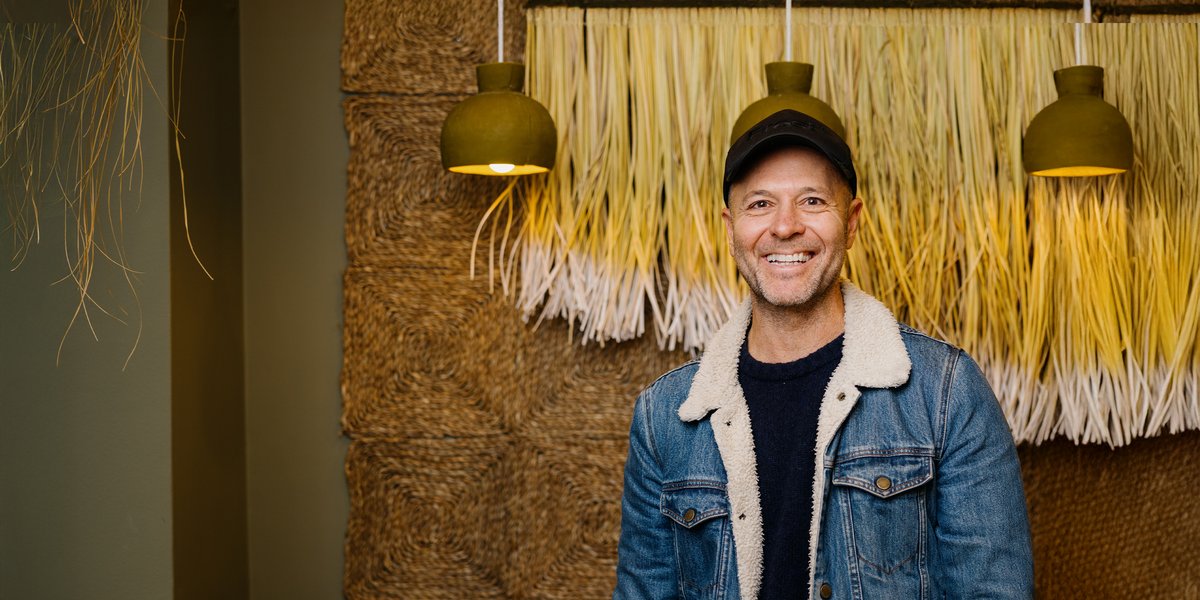
Craig Andrade
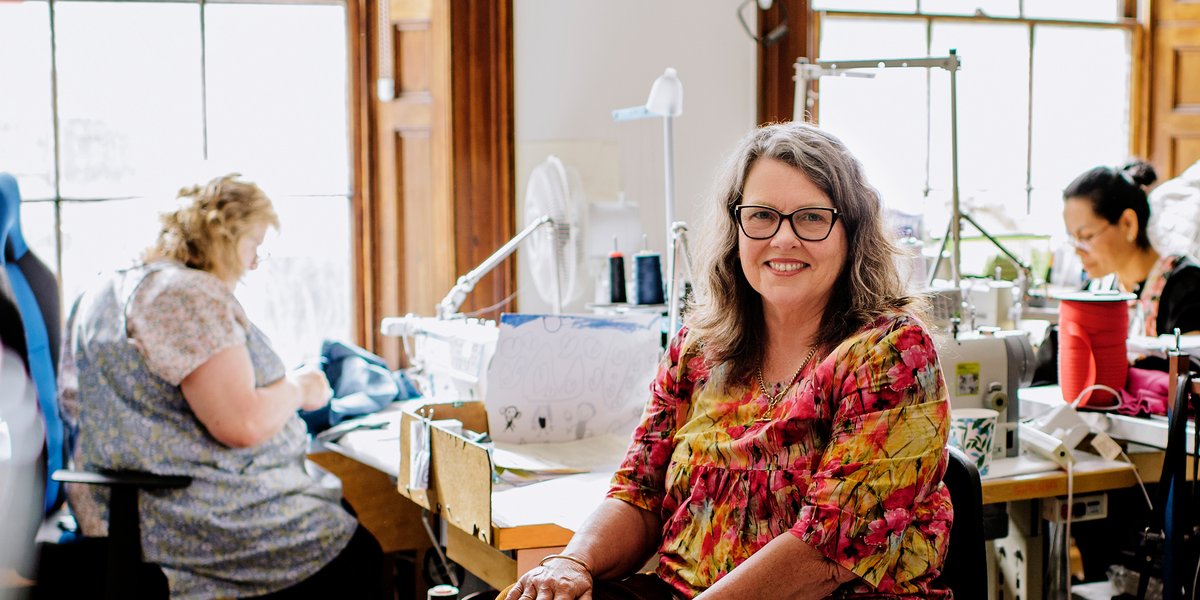
Bronwen Feachnie
